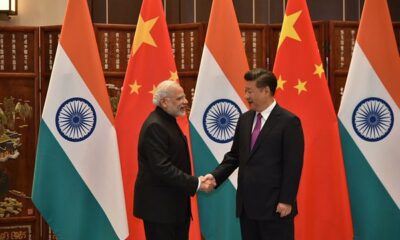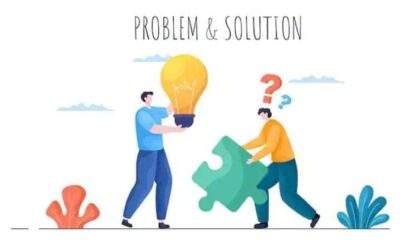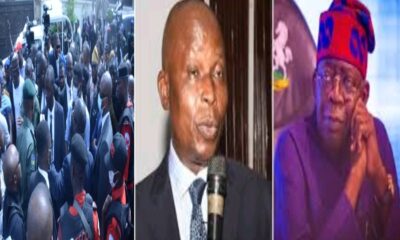Economic Issues
Diversifying or decentralising Nigerian economy? -By Tayo Oke


Tayo Oke
Having spent so much money in a bid for re-election, the President Goodluck Jonathan’s administration created a financial bubble that was bound to burst one way or another. Public expenditure was on the upward trajectory certainly in the last two years preceding the general election. As it turned out though, billions of dollars meant for procurement of arms were diverted and frittered away with reckless abandon. Similarly, oil revenues were corruptly splattered around like confetti by a very powerful, but morally bankrupt public office holders.
A former Governor of the Central Bank of Nigeria, Prof. Chukwuma Soludo, was therefore merely stating the obvious in his recent comment on Nigeria’s financial predicament, that the spending habit of the last administration created the building blocks for the current recession. This sentiment has also been echoed repeatedly by the administration of President Muhammadu Buhari in a frantic effort to dissuade Nigerians from entertaining the bad and insatiable appetite for spending on importation of (mainly Western) consumer goods. “We are not a petro-economy”, the Minister of Finance, Kemi Adeosun, asserted recently. With respect to the minister, this is incorrect. We are, in fact, a de facto petro-economy. What I suspect she and the administration want to do is to re-engineer the economy away from petroleum to production of goods, hence, the current trendy and buzzword: diversification.
The word, “diversification”, drips from every lip of government minister, and expert commentator in such a robotic reflex, and with such an arresting regularity that the general public too appears to have caught the bug. Like the “change” mantra of the All Progressives Congress, diversification, it appears, has become the one word panacea to our socio-economic malaise. It is so clear and clean-cut that its object is now beyond disputation. Or, is it? For a start, if it’s the answer to everything, then, it is concomitantly the answer to nothing. If it is a mere propaganda by the current administration to drum up support for its economic policy, then, it is doing pretty well indeed. If, however, it is meant as a serious debate to a serious economic problem, then, it is one that is largely being conducted in a vacuum at the moment.
To prevent the public from being blindsided about this, it is important to cast our minds back to how Nigeria became the de facto petro-economy that it is today. In real petro-economies like Saudi Arabia, Qatar, Kuwait etc, oil accounts for 100 per cent of their foreign exchange earnings, ours is close to 90 per cent. Petro-economies nurse no qualms about foreign imports since there is abundance of petro-dollars to pay. Everyone would agree, this is where Nigeria defers from the real petro-economies. Furthermore, Lagos and Kano combined are bigger than the populations of the three petro-economies mentioned here, and in the case of Saudi Arabia, its population is actually declining, while its income from oil is steadily climbing up. On the contrary, we have a burgeoning population that is set to hit the significant landmark of 200 million in a few years’ time. Consequently, the revenues from oil, for Nigeria, is only a drop in the ocean vis-à-vis that of the real petro-economies. That, nonetheless, has not stopped our leaders from running this country as if it too, were a real petro-economy. The Minister for Mines and Steel Development, Dr. Kayode Fayemi, on assumption of office proclaimed the mission of his ministry as one committed to helping ensure the diversification of the economy from overreliance on petrol. While the intention of the minister is laudable, it is, nonetheless, an unattainable mission. The economy is an organic structure that feeds on one another. Try as they may, the burden of diversifying the Nigerian economy is not one that can be borne by the ministry of mines and steel development alone.
Bearing that in mind, let us consider the critical elements of Nigeria’s economic activity and see who controls them. Top of the list are: petroleum and the petro-chemical industries, mines and steel, hydro-electricity power plants, major road infrastructure, the railways, agro-industrial sector, banking and finance, land holding (the state, by law, is the owner of all land in Nigeria), water supply, to name but a few. These are the mainstay of our economy, and they are all controlled from the centre, by the Federal Government. Nothing moves within any of these without the say-so of the Federal Government. They have been expropriated on behalf of “all Nigerians” as they have been declared as belonging to the “critical sectors” of the country’s economic well-being. Remember, banking and finance are being controlled by the Central Bank of Nigeria and Securities and Exchange Commission, both of which are federal agencies. You see, when our leaders boost to foreigners about how much our economy has been “liberalised” for the purpose of attracting direct foreign investment, I chuckle a bit. I know, and I am sure they too know that we do not run a free market economy in Nigeria; what we have is state capitalism at best, and a command economy at worst.
State capitalism is used here advisedly; there is nothing inherently wrong about the concept. This, after all, is what China and Russia are doing. It is what gave rise to the so-called Asian Tiger economies of Singapore, Hong Kong, South Korea and Taiwan, which now thrive in the technological fast lane of the world’s advanced economies. The problem with state capitalism in the case of Nigeria is that the state, itself, operates as a captive object for powerful vested interests, which would stop at nothing to preserve their position of privilege and overarching influence. State capitalism is good if, like the Asian Tiger economies, it is run for the benefit of everybody, but it is debilitating if it is run to secure gains for a select, obdurate and myopic few. Diversifying a state capitalist economy like ours is like putting lipstick on a pig; it remains a pig.
Consequently, the solution for revamping our economy ought to be decentralisation; it is the clarion call to action of our time. Besides, it is a more accurate way of portraying the way forward than “restructuring”, which is rather bland, loaded and is given to all kinds of mischievous interpretation. Diversification without decentralisation is tantamount to a fool’s errand, it is whistling in the dark.
Economy based on mineral and natural resources/strategic industries/centralised (look up the law…)
State capitalism rather than free market.




















